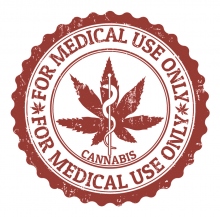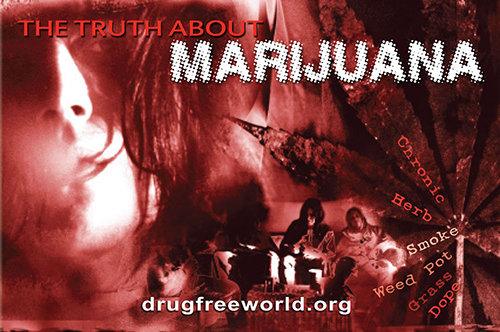IS MARIJUANA MEDICINE?
Components of the marijuana plant may have medicinal properties. That is not the same as “medicine.” Medicine is made when a laboratory extracts the medicinal compound, standardizes it (meaning that it will do the same thing every time), and doses it (a standardized amount the doctor prescribes).
The term “medical marijuana” is often applied to the whole unprocessed marijuana plant or its crude extracts, which are not recognized or approved as medicine by the U.S. Food and Drug Administration for any illness.16
Because marijuana is sometimes marketed as a medicine, perception of the drug has changed. But the basic facts about marijuana haven’t changed just because it’s marketed as a “medicine.” And while the debate over legalization presses on, legal does not equal safe. Cigarettes are legal but there is no debate about the fact that smoking is a health risk. Alcohol is legal but look at the number of people battling alcohol addiction or illnesses associated with alcohol abuse.
MARIJUANA AFFECTS DRIVING
The use of marijuana significantly impairs judgment, coordination and reaction time—all skills needed to drive safely. Marijuana is the second most commonly psychoactive substance found among drivers after alcohol.17
Marijuana users are 3 to 7 times more likely to have a car crash.17
Driving under the influence of cannabis is associated with a 92% increased risk of vehicular crashes. Important is the fact that such driving was associated with a 110% increase in fatal crashes.18
- AAA reported that in the U.S. cannabis-involved fatalities increased from 8% in 2013
to 17% in 2014.19 - In Colorado, marijuana use increased significantly starting in 2009, and a study found that the proportion of drivers in fatal car crashes in Colorado testing positive for marijuana had risen from 5.9% in 2009 to 10% in 2011.20
- In the state of Washington, fatal driving accidents have risen 122% between 2010 and 2014.21
- In California, the percentage of drivers testing positive for marijuana that were involved in fatal car crashes rose from 9% in 2005 to 16.5% in 2014.21
REFERENCES
- “Psychoactive Drugs Notes—Marijuana” Sinsemilla, M. Plonsky PhD
- “DrugFacts: Marijuana,” National Institute on Drug Abuse, Jan 2014
- “Does marijuana use affect driving?” National Institute on Drug Abuse, March 2016
- “Dose related risk of motor vehicle crashes after cannabis use,” NCBI
- “Marijuana Use Increases Risk of Traffic Crashes and Deaths,” Potsdam University
- “Fatal Road Crashes Involving Marijuana Double After State Legalizes Drug,” AAA NewsRoom, May 2016
- “More Colorado drivers in fatal crashes positive for pot, study says,” The Denver Post, May 2014
- “Percentage of California Drivers Testing Positive for Marijuana, Involved in a Fatal Crash,”
FARS 2005–2013 - “Dose related risk of motor vehicle crashes after cannabis use,” NBCI, Feb 2004
- “Stoned Drivers Are Killing More and More Innocent Victims,” CNS NEWS, Oct 2013












































